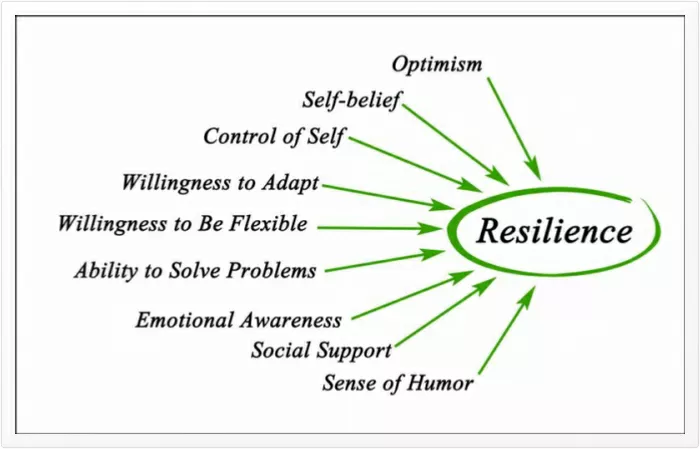Strengthening Resilience & Mental Health: Strategies For Life's Challenges

Table of Contents
Understanding Resilience: The Foundation of Mental Wellbeing
Resilience, often described as mental toughness, adaptability, and emotional regulation, is the cornerstone of strong mental health. It's the ability to bounce back from adversity, to cope with stress, and to thrive even in the face of significant challenges. Understanding resilience is the first step towards strengthening it.
Defining Resilience
Resilience isn't about avoiding hardship; it's about how you respond to it. It involves a combination of factors, including your coping mechanisms, support system, and overall mindset. Individuals with high resilience demonstrate a capacity for:
- Adaptability: Adjusting to changing circumstances and setbacks.
- Problem-solving: Effectively addressing challenges and finding solutions.
- Optimism: Maintaining a positive outlook and belief in a positive future.
- Emotional regulation: Managing difficult emotions in a healthy way.
Identifying Your Resilience Strengths
Self-reflection is key to understanding your existing resilience strengths. Take some time to consider:
- Past challenges overcome: Think about times you faced adversity and how you successfully navigated those situations. What strategies did you use? What did you learn?
- Recognizing personal strengths: Identify your inherent strengths. Are you a good problem-solver? Are you naturally optimistic? Do you have strong communication skills? These are all valuable assets in building resilience.
- Assessing current coping mechanisms: What strategies do you currently use to manage stress and difficult emotions? Are these strategies effective? Are there areas for improvement?
Recognizing Warning Signs of Low Resilience
Recognizing when your resilience is waning is crucial. Signs of low resilience can include:
- Chronic fatigue and burnout: Feeling constantly overwhelmed and exhausted.
- Increased anxiety and irritability: Experiencing heightened anxiety, difficulty concentrating, and frequent mood swings.
- Social withdrawal: Isolating yourself from friends and family.
- Difficulty sleeping: Experiencing insomnia or other sleep disturbances.
- Increased substance use: Turning to alcohol or drugs to cope with stress.
If you're experiencing several of these symptoms, it's important to seek professional help. Resources such as the and the can provide valuable support and guidance.
Practical Strategies for Building Resilience
Building resilience is an ongoing process that requires conscious effort and commitment. Here are some practical strategies you can implement:
Cultivating Self-Care Practices
Self-care isn't selfish; it's essential for maintaining strong mental health and resilience. Prioritize these self-care practices:
- Prioritizing sleep hygiene: Aim for 7-9 hours of quality sleep per night.
- Maintaining a healthy diet and exercise routine: Nourish your body with healthy foods and engage in regular physical activity.
- Practicing mindfulness and meditation: Develop techniques to calm your mind and reduce stress. Apps like Headspace and Calm can be helpful.
- Engaging in hobbies and activities you enjoy: Make time for activities that bring you joy and relaxation.
Developing Strong Social Connections
Strong social connections provide crucial support and buffer against stress.
- Nurturing existing relationships: Spend quality time with loved ones and maintain open communication.
- Building new connections: Join social groups or clubs based on your interests. Connecting with like-minded individuals can provide a sense of belonging and support.
- Seeking professional help when needed: Don't hesitate to reach out to a therapist or counselor if you're struggling to cope.
Mastering Stress Management Techniques
Effective stress management is a critical component of building resilience. Consider these techniques:
- Deep breathing exercises: Practice deep, slow breaths to calm your nervous system.
- Progressive muscle relaxation: Systematically tense and release different muscle groups to reduce physical tension.
- Cognitive Behavioral Therapy (CBT) techniques: Learn to identify and challenge negative thought patterns.
- Time management strategies: Develop effective time management skills to reduce feelings of being overwhelmed.
Seeking Professional Support for Mental Health
Sometimes, seeking professional support is necessary to address mental health challenges and build resilience.
Recognizing When to Seek Help
If you're struggling to manage stress, experiencing persistent negative emotions, or your daily life is significantly impaired, it's crucial to seek professional help.
Finding the Right Therapist or Counselor
Finding the right therapist is a personal journey. Consider factors like their experience, therapeutic approach, and your comfort level. Online directories can help you find mental health professionals in your area.
Different Types of Therapy
Several therapeutic approaches can help build resilience. Cognitive Behavioral Therapy (CBT) is commonly used to address negative thought patterns and behaviors. Dialectical Behavior Therapy (DBT) focuses on emotional regulation and distress tolerance.
Conclusion
Strengthening resilience and mental health is an investment in your overall well-being. By understanding resilience, implementing self-care practices, fostering strong social connections, mastering stress management techniques, and seeking professional support when needed, you can equip yourself to navigate life's challenges with greater strength and emotional stability. Start building your resilience today! Implement even one of these strategies to improve your mental wellbeing and navigate life's challenges with greater strength. Remember, prioritizing your mental health is an investment in a happier, healthier you. Continue to prioritize strengthening resilience and mental health for a fulfilling life.

Featured Posts
-
 Peppa Pig Welcomes A New Sibling Release Date Speculation
May 21, 2025
Peppa Pig Welcomes A New Sibling Release Date Speculation
May 21, 2025 -
 Fratii Tate Intampinati De O Multime Entuziasta In Bucuresti
May 21, 2025
Fratii Tate Intampinati De O Multime Entuziasta In Bucuresti
May 21, 2025 -
 Market Analysis Why Big Bear Ai Holdings Bbai Is Down In 2025
May 21, 2025
Market Analysis Why Big Bear Ai Holdings Bbai Is Down In 2025
May 21, 2025 -
 Abn Amro Impact Invoertarieven Op Nederlandse Voedselexport Naar De Vs
May 21, 2025
Abn Amro Impact Invoertarieven Op Nederlandse Voedselexport Naar De Vs
May 21, 2025 -
 Busy Schedule Sydney Sweeneys Film Projects After Echo Valley And The Housemaid
May 21, 2025
Busy Schedule Sydney Sweeneys Film Projects After Echo Valley And The Housemaid
May 21, 2025
